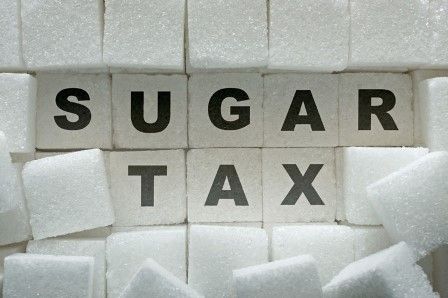
Proposal to double sugar taxes in South Africa
Health NGO Heala says that the proposed increase in the health promotion levy (HPL) for 2023 is too small – and more products should be included in the tax.
The tax, colloquially known as the “sugar tax”, is charged on non-alcoholic sugary beverages and practically works out to about 10% of the cost per litre of sugary drinks.
Fruit juices are currently exempt from the tax, but Heala said this should change.
During the 2022 Budget Speech, the minister of finance Enoch Godongwana announced an increase to the HPL for beverages with more than 4g of sugar content per 100ml, from 2.21c/g to 2.31c/g – representing an increase of 4.5%.
The increase was initially expected to take effect from 1 April 2022 but was deferred by a year to 2023.
Heala noted that the HPL has not seen an increase since it was enacted in 2018 and expressed support for Treasury’s plan to hike the tax in the coming year.
However, it said that the tax hike needs to be implemented sooner and needs to be at a higher rate.
“The National Treasury has not given the reason for this postponement or how the decision was made. This lack of transparency and accountability is worrying, especially regarding a food policy that helps prevent unhealthy consumption of sugar-sweetened beverages,” it said.
The group said that the increase of just 4.5% – representing close to 15% per litre of the sugary drink – is not good enough and that the threshold of 4g of sugar content per 100ml is still too high.
It has proposed the following changes to the increase in the HPL for April 2023:
- National Treasury must increase the tax to 20% per litre of the sugary drink;
- Lower the threshold from 4g to 2g of sugar content per 100ml; and
- Expand its defined sugar-sweetened beverages to include fruit juices.
Heala head, Lawrence Mbalati, said that the HPL was intended to disincentivize the excessive consumption of sugar, which was seen as the driver of increasing non-communicable diseases such as obesity, diabetes, and high blood pressure – adding that the current proposals are not a good enough disincentive.
“We need to strengthen this tax, as it has been shown to help prevent unhealthy consumption of SSBs and protects the public against obesity and other life-threatening non-communicable diseases (NCDs),” said Mbalati.
Diabetes is one of the key NCDs targetted by the tax. It is a chronic disease requiring continuous clinical care and management, which consumes significant healthcare resources.
Research posted by the National Library of Medicine showed that by 2030, all Type 2 diabetes cases are estimated to cost the public health sector close to R35 billion.
Mbalati added that even with the current sugar tax, it’s hard to find healthier alternatives that don’t have a high sugar concentration, which needs to change.
“South Africa needs to use policy and regulation to force food producers to reformulate and create healthier food options,” he said.
News Category
- International retailers
- On the move
- Awards and achievements
- Legislation
- Wine and liquor
- Africa
- Going green
- Supplier news
- Research tools
- Retailer trading results
- Supply chain
- Innovation and technology
- Economic factors
- Crime and security
- Store Openings
- Marketing and Promotions
- Social Responsibility
- Brand Press Office
Related Articles

Warning of Eskom collapse

Knorr recalls brown onion gravy sachets

Eskom CEO shares good news about load-shedding

Tax warning for South African businesses


